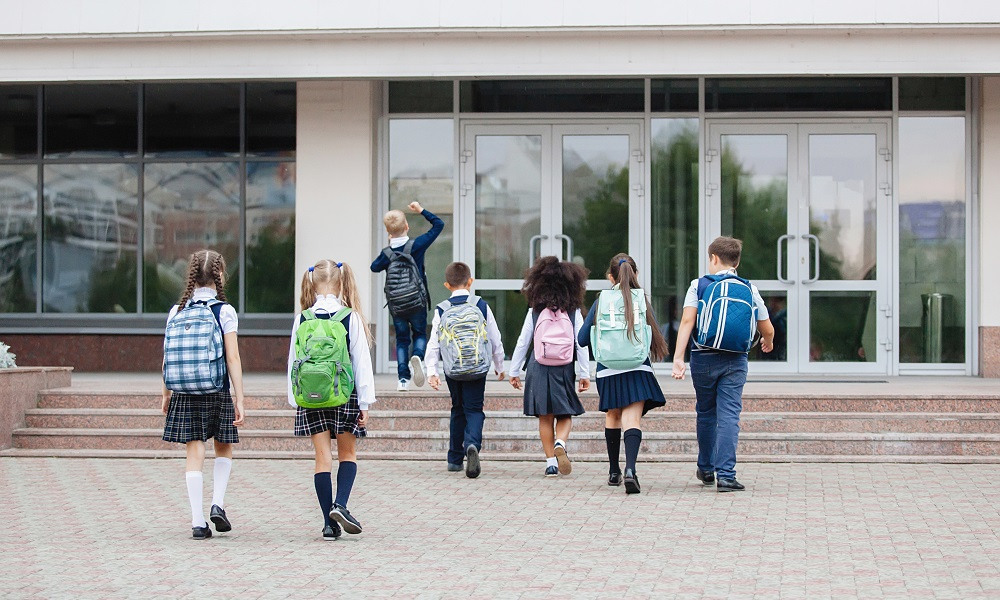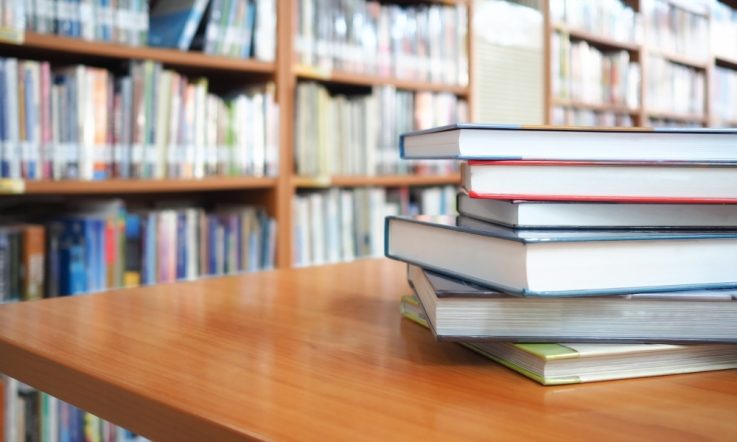This podcast from Teacher magazine is supported by YSoft be3D eDee, a safe and easy to use 3D printing solution for education.
Hello, and thanks for downloading this episode of Teacher Staffroom, where we catch you up on the latest evidence, insight, and action. I'm Dominique Russell.
The school year in Australia has well and truly begun, and in this episode, we're taking a look at some new resources that have become available to assist educators and school communities to support themselves and their students after the recent bushfire crisis. I'll also share the story of a school that has kicked off 2020 by transforming aspects of their curriculum, and take you through the new animated TV series that aims to help Indigenous students get the best start to school they can.
I'll be posing some questions throughout this episode, so feel free to pause the audio as you go, gather some colleagues and discuss together how these stories could be relevant to your school context. Let's jump in.
One school in Victoria has certainly been busy leading up to the start of the 2020 school year. Assumption College, a Year 7-12 secondary school, has implemented a curriculum reform initiative. It's called myMAP, and we spoke to the Deputy Principal of Learning and Teaching to discuss its features. It was a really interesting story about how they're transforming learning away from a year level focus and rather towards phases of learning. They're doing this by focusing on a vision centred on three core principles which enable deep learning: mastery, autonomy and purpose, which is where myMAP gets its name.
The article discussed how myMAP actually works in classrooms and why it supports students on individual learning journeys. The Deputy Principal, Vaughan Clearly, had this to say about the process of implementation of myMAP and how this curriculum reform was communicated to parents.
To support the transition to myMAP we held a series of workshops for students and their families that were well attended. Families could also have a consultation with Learning Leaders and the Pathways Team to help. To also assist in the process, we developed some guidelines that mapped student data to recommended levels in subjects such as English.
The planning phase of the myMAP initiative also involved extensive collaboration with staff. They were offered the opportunity to bring to the table the subjects that they have always dreamed of teaching. So, that brings me to a question to think about. If you were afforded the same opportunity, what ideas and suggestions would you put forward?
Another article concerning the curriculum that piqued my interest is also one that could serve up some inspiration for the beginning of the school year. In a recent reader submission for Teacher magazine, high school teacher Keith Mason, all the way from the US, discussed how he integrates school musicals into classroom lessons. He had some really practical tips about making connections between certain musical students at your school might be performing with different subjects. He also explored some themed activities that are suitable for the classroom.
Keith had this to say about the motivation behind connecting musicals to classroom learning:
School musicals offer so much to enhance student learning across the curriculum. They serve as stimuli for creativity in addition to subject matter concept practice, curriculum standards, visual arts integration, writing, researching, technology, and school spirit. They can teach students about storytelling, social emotional learning, tolerance, diversity, STEAM and popular culture.
So, Keith says instead of being limited to staging performances, school musicals can enhance classroom learning in other subjects. Perhaps think about what music or arts events and performances your school is staging this year. How could you work with colleagues to integrate some of these themes and learning opportunities?
Remember, we welcome article contributions from educators, whatever your role, school sector or location. We have a quick guide to submitting articles, which I will place a link to in the transcript of this podcast. You can find all of that, as well as links to all the content discussed in this episode, at our website, teachermagazine.com.au.
Now, changing paces and another theme that's been present for schools returning this year is, of course, the impact of the bushfires. We recently heard from former Prime Minister of Australia and Chair of the Global Partnership for Education and Chair of Beyond Blue, Julia Gillard, about bushfire recovery in a school setting.
In her article for Teacher, she wrote about why schools and early learning services are in a strong position to help children and young people adjust after the bushfire disaster. She also pointed to a Bushfires resource pack designed for educators that was developed by Beyond Blue. This point here that Julia made, I found particularly interesting. She said:
Adults need routine, just like children, to help them feel calm and secure, so try and get back into a daily rhythm as soon as possible. It can be challenging supporting [children] who are recovering from trauma, so making sure you debrief with trusted colleagues, family or friends is also important.
Coming up, we explore trauma informed education practices and its relevance after the bushfire crisis. But first, here's a quick message from our sponsor.
You're listening to a podcast from Teacher magazine, supported by YSoft be3D eDee. 3D printing brings classroom lessons to life. eDee lets students print 3D models safely under school usage controls without requiring teacher supervision. Ready to use 3D lesson plans are included in be3D Academy. Special Education bundle pricing is now available. Visit ysoft.com/3DEducation today.
Now, following on from what Julia said about supporting children who are recovering from trauma, I'd like to take you to a recent podcast episode we published. It was on a topic that many of you asked for us to delve into – trauma informed education practices. Our editor, Jo Earp, sat down with an educational and developmental psychologist at Monash University.
Here's a small snippet from the episode:
It's important to keep in mind though that relationships and connectedness take time with these students. And that's something I always try to remind teachers about – that to create a connection with students who have experienced trauma, because they do tend to sometimes have distrust of other people, and distrust of the school system, or distrust of teachers, that it does take time to develop those. And that's all through being consistent, doing as you say you're going to do, responding in a way that you know is going to be individualised and is going to work for that student.
That was Dr Emily Berger there, and what she just said brings me to another question to think about. In this podcast she talked a lot about being consistent as an important principle of adopting a trauma informed approach. So, when school routines and schedules are updated or changed unexpectedly, do you work with colleagues to identify students that these changes might be an issue for? What strategies do you put in place to support them?
Now, taking you back to this episode's theme of starting the school year, an animated TV show you might be familiar with has just kicked off its second season. Little J & Big Cuz is a Logie award-winning show and it aims to help Indigenous children get the best start to their formal schooling.
Episodes document the main characters navigating common school experiences like lunch breaks, show-and-tell and school performances. For season one, a range of free educator resources which are mapped to the Early Years Learning Framework and the Australian Curriculum are available. You can access these to assist you in including Aboriginal and Torres Strait Islander knowledge, understanding and skills in your teaching. The show's director, Tony Thorne, had this to say about the show's new season.
The show's creation is another step in the empowerment of Aboriginal people to represent their contemporary lives from their perspective. … Little J & Big Cuz has a profound relevance beyond its Indigenous audience and has delighted children and indeed adults nationwide.
And finally, I'd like to take you to the story of a school's commitment to reconciliation. Maclean high school in New South Wales has a school population of 750 students, with 13.7 per cent identifying as being of Aboriginal or Torres Strait Islander descent and heritage. They concentrate on maintaining deep relationships with local Elders and community members and recently went through the formal process of being recognised as having a Reconciliation Action Plan.
In the article, we spoke to the Deputy Principal Instructional Leader – Aboriginal Students, Liza Hamilton, about these deep relationships with the community and what the process of putting together a formal Reconciliation Action Plan was. The school was also recognised in the Narragunnawali Awards in 2019 from Reconciliation [Australia], where they were named winners. The school nominated themselves for the award, which brings me to one final question.
Have you ever been involved in the process of nominating your own school for an award? If not, perhaps it can be a goal for this school year. Think about how it could push you to reflect on your achievements as a school community, and identify areas of strength.
That's all from me today, and you're all caught up on the latest evidence, insight and action. I'll place links to all the content and resources I've mentioned in the transcript of this episode, which you'll be able to find under the podcast tab at our website, teachermagazine.com.au.
Remember, we'd love to hear from you about how you've been using our content in your classroom. You can get in touch with us via our website, or find us on Twitter and Facebook by searching ‘Teacher ACER'.
You've been listening to a podcast from Teacher, supported by Y Soft, makers of eDee, a safe and easy to use 3D printing solution for education.



